
Musei Tokugawa
Рождение : 1894-04-12, Masuda, Shimane Prefecture, Japan
Смерть : 1971-08-01
История
Мусэй Токугава —японский бэнси , актёр, эссеист, а также радио- и телевизионный деятель. Mусэй (как его называли) впервые стал известен как бэнси, комментатор фильмов в эпоху немого кинематографа в Японии . Он прославился своим сдержанным, но эрудированным пересказом экранных историй, что очень импонировало любителям интеллектуального кино. Он сконцентрировался на иностранных фильмах, таких как «Кабинет доктора Калигари», в театрах высокого класса, таких как «Аойкан» и «Мусасинокан», но также комментировал и японские произведения, такие как экспериментальный шедевр Тейноскэ Кинугасы «Страница безумия» (1926). Когда эпоха немого кино закончилась, Мусэй переключился на рассказывание историй со сцены и на радио, а также начал сниматься в кино. Он также был известен своими эссе, юмористическими романами и автобиографическими сочинениями, опубликовавшим почти пятьдесят книг в своей жизни. С появлением телевидения в Японии Mусэй также стал заметным представителем в этой индустрии.
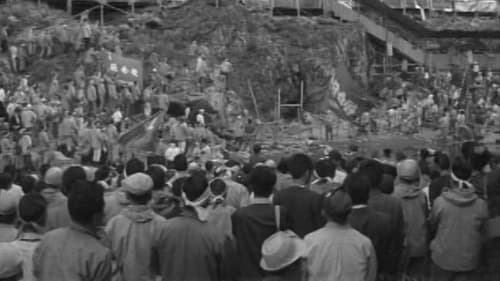
Narrator
A chronicle of the eight-year battle against the construction of the Matsubara dam at Ogunimachi Shimouke, Asogun, district of Kumamoto. Tomoyuki Murahara constructs the “beehive fortress,” the point of reference for the protest movement opposing the decision to expropriate land.
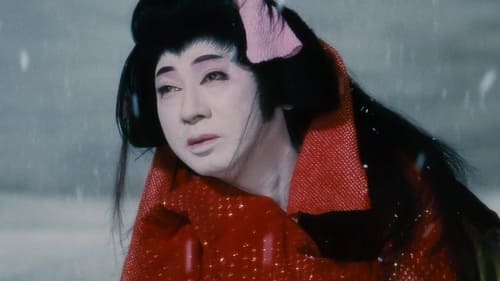
Действие происходит в старом Эдо (древнее название Токио). Знаменитый исполнитель женских ролей (по-японски «Оннагата») замышляет отомстить нескольким торговцам, виновным в смерти его родителей…но не торопится: он хочет, чтобы его жертвы познали перед смертью отчаяние.

Also Known As: Otogi's Voyage Around the World

The mythical adventures of the legendary Chinese trickster Monkey, who must outwit a variety of wily demons who stand in the way of him and his fellow Buddhist travelers. Though portrayed as a literal, if rather anthropomorphized, monkey in the original legends, this film substitutes the spindly comic actor Norihei Miki, sans makeup.
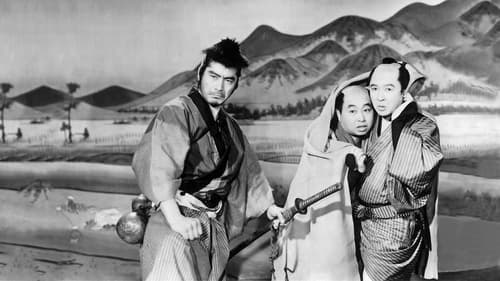
Ikku Jippensha
Two residents of Edo city Yaji and Kita make a journey to the temple of Ise, as part of a religious pilgrimage, but actually to get away from their wives for a little while. As they travel, they are constantly beset by complications involving women, mistaken identity, and misunderstood events. Another film adaptation of the famous novel Ikku Jippensha Footing It Along the Tokaido (Tokaidochu Hizakurige)

The fourth entry in the Company President Series

По мотивам китайского сказания «Легенда о Белой Змее» (Pai-she Chuan) и романа Фусао Хаяси «Заклятие Белой Госпожи». В эпоху Сун в Ханчжоу бедный Сюй-сянь встречает прекрасную и знатную Бай-нян. Их союз кажется невозможным, но Бай-нян готова разрушить все преграды на пути к своей любви.

A little girl who falls into a lake and is saved by a god who then takes her up to the clouds and shows her what the world was like before she was born and what the world would be like if she where never born. While in the clouds she meets her grandparents and a few other people she loved who have passed on.

Japanese comedy film.

film directed by Tai Katô

Jirôemon Naitô
Jidai-geki by Nobuo Nakagawa. Most likely a star vehicle for Kanjuro Arashi

A bar girl tries to pass her three children, each from a different father, to rural relatives.

An Ishiro Honda short film.

Narrator
Tobisuke, puppeteer in Kyôtô, saves O-fuku's life. Wounded in the head, it can now count to three. O-fuku invited him to meet her mother so she can heals him with a golden fruit. But O-fuku and Tobisuke had to cross the valley of death filled with fantastic creatures, will they survive?

Первая адаптация японским режиссёром Кадзиро Ямамото пьесы французского автора Марселя Паньоля, действие которой перенесено в Японию начала XX века. Мелодрама о двух влюблённых Масакити и Охане, которые никак не могут быть вместе из-за мечты Масакити стать моряком и уйти в дальнее плавание.

Dr. Senuma
Horror film directed by Kôzô Saeki.
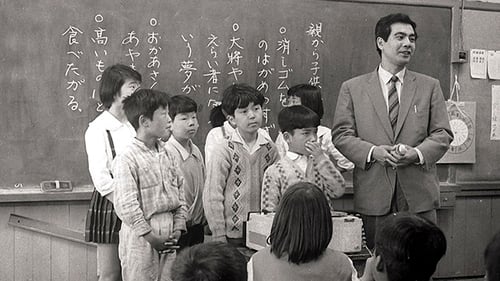
A small-town boy with a learning disability attempts to fit in with his classmates.

Baifû Shumpûtei
This film focuses on Koreans living in Japan. The filmmaker’s humanism comes across in the portrayal of a girl living in a shabby tenement, the warmth of a Korean girl she meets, and the friendliness of this Korean girl’s family.

1944 war movie
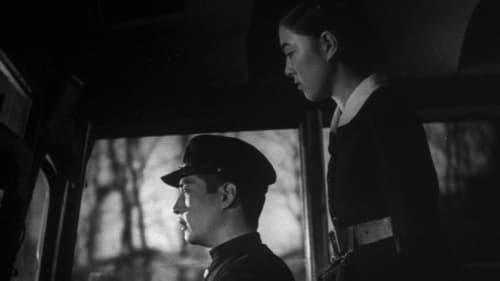
(voice)
Фильм агитационной направленности, снятый в период войны. Знатная семья Онаги владеет полем, которое хранит память о павших воинах прошлого. Страна остро нуждается в продуктах, но люди боятся заклятия, согласно которому это поле нельзя тревожить мотыгами. Молодёжь деревни не хочет мириться с преданиями старины и просит хозяев поля разрешить им распахать его. В деревню приезжает врач, который хочет купить, принадлежащий семье драгоценный меч работы Магороку из Сэки.

Ichibei
This epic depicts the battle between Uesugi Kenshin and Takeda Shingen. The focus of the story is the struggle by the unit leader in charge of the main supply wagons and the supply troops to transport materiel to the Uesugi army. To this are added episodes involving an itinerant woman.

Feature film.

(Japanese version)
The story was liberally adapted from a short sequence in the popular Chinese folk tale Journey to the West. Princess Iron Fan is a main character. Specifically, the film focused on the duel between the Monkey King and a vengeful princess, whose fan is desperately needed to quench the flames that surround a peasant village.
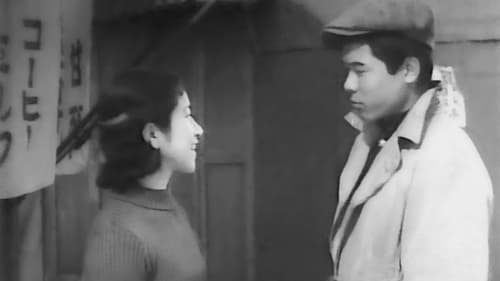
Ishimura
В семье господина Исимуры 11 человек – он сам, его жена, пять сыновей, две маленькие дочки и двое престарелых родителей. Отец и трое старших сыновей работают на фабрике. Несмотря на это, семья еле сводит концы с концами. Никто из братьев не может позволить себе не работать. Кризис наступает, когда самый старший брат Кийти заявляет о своем желании оставить фабрику и поступить в техническое училище.

Mito Komon
This is the only surviving “Mito Komon Manyu-ki” film. This release also known as "Adrift Tour Memoir" or literally "Mito Komon's Pleasure Trip" is an 80-minute compilation of the first (東海道の巻 or "Tokaido no maki") and second (日本晴れの巻 or "Japan's Fine Weather Reel") parts (147 minutes), which were re-edited and screened at a time when presentable films were dried up immediately after the defeat of the war.
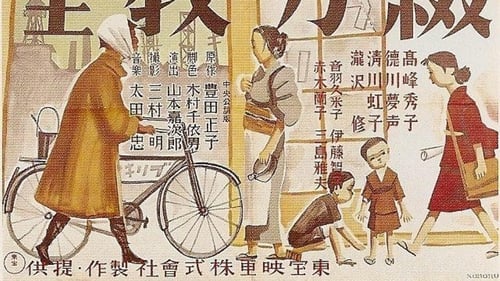
Father
13-летняя Масако живет в бедном районе на окраине Токио. Её перспективы, как и у остальной семьи, не очень радужны. Однако учитель отмечает её способности и побуждает её продолжать учиться, чтобы иметь возможность пройти дополнительное обучение и повысить свои шансы в жизни. Семья Масако еле-еле находит средства на пропитание, мать даже от безысходности подумывает продать дочку в дом гейш, все эти невесёлые перспективы угрожают дальнейшему образованию девочки.

Narrator
Propaganda documentary about the fall of Nanking. Considered for a long time as a lost film, it was discovered in Beijing, China, in the year 1995.

Hikoroku Laughs a lot

Meitei
1936 P.C.L. adaptation of Natsume's novel.

The first in a series of films featuring the comedy duo Entatsu-Achako, providing them with a background story to do their popular manzai-routines on film. Here, Entatsu and Achako start out as rivals for the affection of a young woman but ultimately pair up to face a bigger rival. Entatsu chooses to become a boxer to get his chance at punching the rival out of the way.

Principal Tanuki
1935 P.C.L. adaptation of Natsume's novel.

Фильм, который обычно считают первым настоящим мюзиклом в Японии, был также первым фильмом, снятым полностью на студии P.C.L. (раннее название кинокомпании «Тохо»), компанией, созданной специально для того, чтобы воспользоваться преимуществами новейшей звуковой технологии. P.C.L. работал в сотрудничестве с пивоваренной фирмой Dai Nihon Biru, которая полностью покрыла расходы на производство фильма и чьи продукты представлены в фильме в качестве примера изощренного и современного мерчендайзинга, типичного для ранней работы студии. История сюжета касается продавца пива на вокзале и его отношений со студенткой, пытающейся сочинить хитовую песню.

An early Japanese sound film, notable for being the only Japanese film ever to use the Western Electric Sound System. Contrary to most Western sources that give sole directing credit to Eizo Tanaka, it was actually co-directed by six different directors, Tanaka, Kazue Kimura, Kazuo Takimura, Ryoji Mikami and Hidekuni Ouchi.

Hikozaemon Okubo
Tsukitaro, a young man who comes to Edo, meets a blind girl named Ochiyo. Ochiyo 's father, the grinder Yasujiro, was asked to sharpen a sword called Kongomaru, which was planned to be presented to the shogun Iemitsu, but he died due to a yakuza attack. In addition, the sword was stolen, and Ochiyo 's sister was also kidnapped... A humorous historical drama directed by Eiichi Kudo, starring Hibari Misora and Kotaro Satomi. Hibari Misora plays a male princess and shows off her charming appearance with stylish songs and dances.









